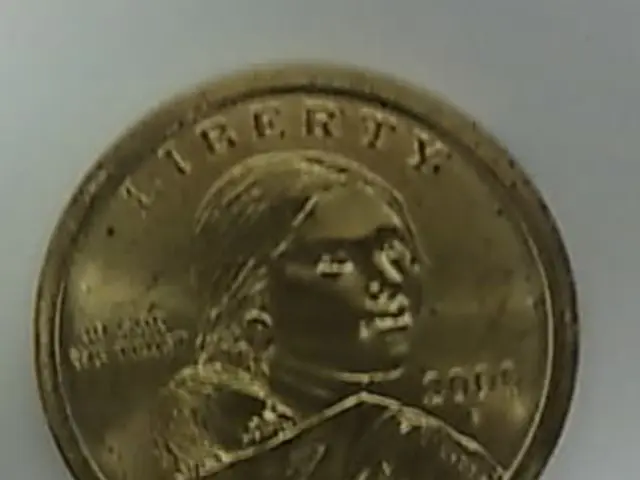Wheels, Wings, and Goods: Trump and Starmer Close First Major Business Deal
Leaders Trump and Starmer commemorate initial major tariff agreement
In a press conference at the White House, US President Donald Trump trumpeted a trade pact with the UK as the epitome of his tariff negotiation strategy. "It's a massive win," declared Trump, "a truly monumental achievement." He expressed his desire for an agreement with the EU, despite the EU's threats of counter-tariffs on US exports valued at nearly $100 billion.
For Trump, the deal with the British marks the first significant accord with a prominent trading partner since his imposed tariffs in early April. Trump hinted that countless more trade deals could soon follow. Conversely, UK Prime Minister Keir Starmer might find validation in his tactic of avoiding hostility with the US. "What a splendid, historic day," Starmer said during the conference call. He sounded triumphant, his enthusiasm palpable.
Trump described the agreement as "all-encompassing." However, sources from the British government stated that it was not the typical free trade agreement. Instead, it targets specific sectors and serves as a groundwork for subsequent negotiations.
Currently, most UK exports (and those from other countries) face US tariffs of 10%. Tariffs on steel and aluminum, as well as automobiles and automotive parts, stand at a whopping 25%. The agreement stipulates a reduction of these levies. Specifically, car tariffs will drop to 10% for a quota of 100,000 vehicles, according to US Trade Minister Howard Lutnick. Rolls-Royce aircraft components will be granted duty-free entry into the US. In exchange, the UK will import $10 billion worth of Boeing aircraft. Moreover, the UK will lower tariffs on US goods from 5.1% to 1.8%, and all tariffs on British steel and aluminum will be eliminated.
The trade volume between the US and the UK reached approximately $370 billion last year. However, around 70% of UK exports to the US consist of services, which are tariff-exempt, and only about 30% are goods.
For Starmer, this is the second major announcement of a far-reaching trade agreement in quick succession. On Tuesday, he and Indian Prime Minister Narendra Modi announced an accord intended to amplify bilateral trade by an additional £25.5 billion (approximately $30 billion) by 2040. For the UK, this marked the most significant trade deal since abandoning the EU. The London government has been intent on striking deals with major economic powers like the US, China, and the EU without causing offense to these parties.
Starmer faces political pressure. Ever since last year's election, his administration has plummeted in popularity faster than any other in the UK post-election. His Labour Party suffered heavily in local elections earlier this month. In the US, Trump has likewise lost popularity due to his economic policies.
The EU has threatened Trump with blanket tariffs of 25% if a settlement with the US is not reached. The deadline is currently set for July. Despite an offer from Brussels to mutually abolish all tariffs on industrial goods, the Trump administration has opted not to engage.
In a wider context, the EU Commission plans to impose additional counter-tariffs on US exports, valued at up to $115 billion, if negotiations with Washington do not lead to a resolution. These duties could be imposed on industrial and agricultural products such as cars, yams, and whiskey. Moreover, the EU Commission is considering EU export restrictions on certain goods valued at $5.5 billion in the event of a dispute. These include steel scrap and chemical products that US companies currently import.
Without a doubt, the US remains a crucial trading partner for the UK. As stated by Marc Lehnfeld of the state-owned Germany Trade and Invest (GTAI) to the German Press Agency in London, "nearly half of British goods exports go there. Only 16% go to the USA, the main destination country."
Sources: ntv.de, as/dpa/rts
- USA
- UK
- Donald Trump
- Keir Starmer
- Tariffs
- EU
- The recent trade agreement between the US and the UK, as announced by President Donald Trump, is a significant move within his strategy of tariff negotiation, aiming to reduce levies on various sectors, such as cars and aircraft components.
- Prime Minister Keir Starmer, in his efforts to boost UK trade, has been preparing for multiple far-reaching trade deals, as evidenced by the recently announced agreements with both the US and India.
- Amidst the ongoing political pressure, Starmer's administration has been negotiating with the EU, attempting to avoid the potential imposition of counter-tariffs by Brussels valued at $115 billion, which could affect industries ranging from automobiles to agricultural products like yams and whiskey.
- As tariff discussions continue between the US and the EU, it's crucial to note that the UK, with its significant economic ties with both parties, finds itself in a pivotal position in the broader context of global trade politics.








